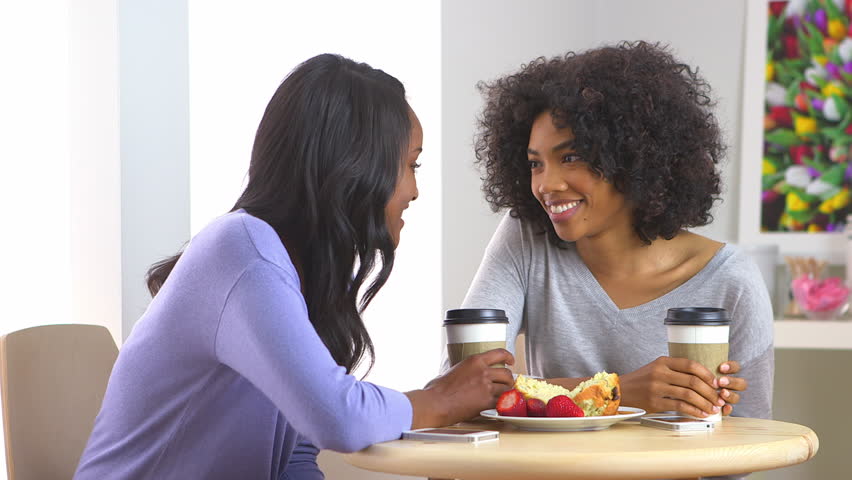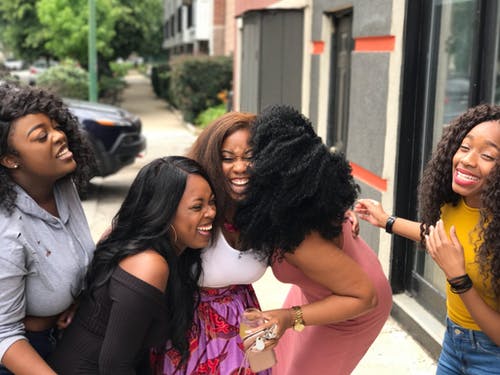by Seanna Leath Ph.D.
Black women’s friendships are critical for connectedness and community.
KEY POINTS
- Friendships allow Black women to gather and carve out safe emotional and psychological spaces away from negative experiences of discrimination.
- Black women purposefully affirm individual characteristics in other Black women that may be shunned by broader society, such as assertiveness.
- Black women can feel understood and “seen” in positive ways that encourage them to try out new things and explore their identity beliefs.
Supportive friendships can reduce our social isolation, increase our sense of well-being, and build our sense of belonging in workplace and community settings. Studies show that across the lifespan—from early childhood and well into adulthood—friendships matter. Friends help us see the best versions of ourselves. This may be especially important for Black women, who actively negotiate their sense of identity in relation to broader societal constructs, such as negative stereotypes of Black women as hypersexual, angry, or superhuman.
Yet, Black women are infinitely more than negative stereotypes, and recent studies suggest that Black women create safe physical and psychological spaces through friendship to navigate life stressors and experience joy and freedom.

Thanks to television shows like Insecure and Girlfriends, as well as movies like Waiting to Exhale, Hidden Figures, and Girls Trip (just to name a few), we are able to witness the types of support and friendship that Black women provide for one another. These shows and films capture a range of everyday moments—from breakups and new relationships to losing jobs and raising children—consistent with research highlighting that Black women live and learn from one another in ways that increase their understanding of history, self, and community.
For instance, in Patricia Hill Collins’ (2000) Black feminist theorization of friendship, she discusses how, “in the comfort of daily conversations, through serious conversation and humor, African-American women affirm one another’s humanity, specialness, and right to exist as sisters and friends.” Her words draw attention to the social and emotional dynamics in Black women’s bonds, and the idea that friendships allow Black women to let their guard down, share their emotions, and form “sistah” bonds.
Power in Groups for Black Women
Additionally, Black women may exercise individual power and agency in conversation and community with one another. Black feminist scholars like Shardé M. Davis frame this as a form of “talking back,” and highlight how the outspokenness that Black women are punished for in other interactions is often celebrated and reinforced in Black female friendship groups.
Black women’s use of friendships as personal and political resistance is not new. As the Black women of the Combahee River Collective (1977), noted, “Our politics initially sprang from the shared belief that Black women are inherently valuable … we realize that the only people who care enough about us to work consistently for our liberation are us.”
In a recent article published in Emerging Adulthood, my colleagues and I found that in friendships with other Black women, Black female college students (18-24 years) were able to process their experiences of discrimination and misogynoir on campus, build social and professional networks with Black women who had similar interests, and move towards more affirmative understandings of their identities. For the women in our study:article continues after advertisement
Related: Black Woman Releases a New Book
- Coming together in physical spaces (e.g., Black cultural centers on campus or specific groups for Black women) helped them develop a sense of safety that they lacked in the broader, predominantly white campus setting.
- Close and meaningful relationships with other Black women functioned as a unique form of social capital (i.e., resources in social networks that produce individual benefits), which they leveraged for mentorship, academic support, and professional development.
- Black female friends offered a space of affiliation and connection where the women could lay down their “armor” (i.e., pressure to present an image of strength and resilience) and simply “be.”
- The young women felt seen and understood by other Black women, which encouraged them to try out new things (e.g., embracing their natural hair) and explore their beliefs about Black womanhood.
- In community with other Black women, they were less likely to code-switch (i.e., adjusting one’s appearance and behavior in exchange for fair treatment) or worry about whether their Black girlfriends viewed them through a stereotypical lens.
Overall, they found a unique form of solace or sense of “coming home” in their friendships with other Black women because they could be themselves.
Our findings echo beloved Black feminist ancestor, author, professor, activist, daughter, sister, and friend bell hooks’ notion of friendship as, “the place in which a great majority of us have our first glimpse of redemptive love and caring community. Learning to love in friendships empowers us and enables us to bring this love to other interactions…”
To find out more about the collective power of Black women’s friendships, check out GirlTrek and the Sister Circle Collective.

